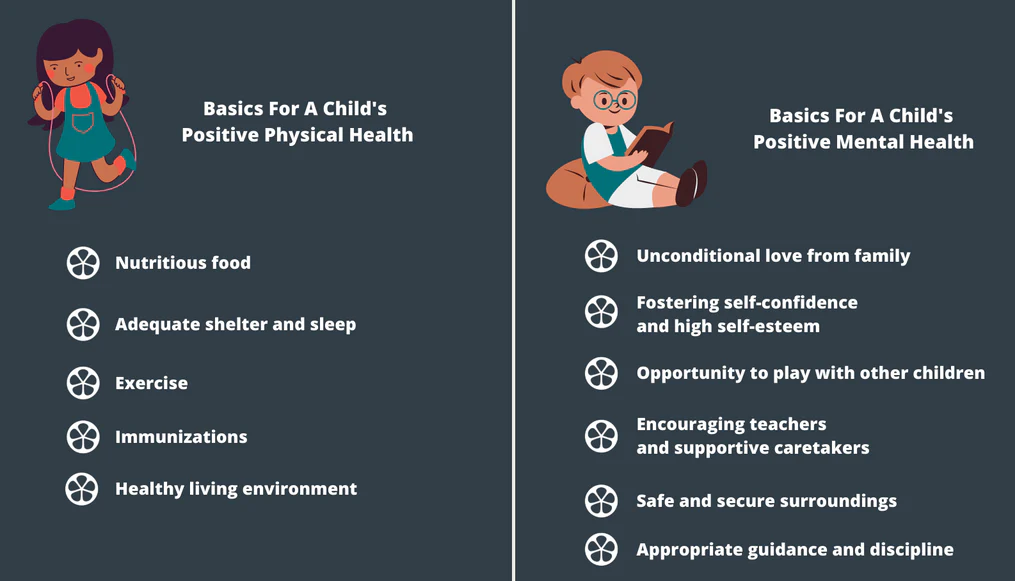Definition
Mental disorders among children are described as serious changes in the way children typically learn, behave, or handle their emotions, which cause distress and problems getting through the day. Sadness, fear, frustration and other emotions are all a natural part of growing up.

Risk Factors
- Study Pressure to gain good grades
- Discrimination based on race , gender, religion, disability, Weight.
- Bullying (whether in person, cyberbullying, or both)
- Tough schedules so less time for self care such as rest, relaxation
- Lack of money/Poverty for safe, stable housing and enough nutritious food
Signs Of Mental Health Problems
- Mood swings
- Irritability
- Anger
- Tearfulness
- Changes in Sleep, Weight
- Loss of interest in the things they usually love
- Canceling plans with their closest friends with little or no explanation
- Signs of drug, alcohol or other substance use
- Signs of self-harm such as cuts, burns, bruises, etc
- Sexual activity or interest that seems new or more intense than before
Common Mental Health Conditions
These are the most common mental health conditions :
- Attention Deficit Hyperactivity Disorder (ADHD); affects nearly 10% of all kids aged 3 to 17 years.
- Anxiety: Nearly 9.5% experience anxiety that interferes with their everyday functioning.
- Depression; Around 4.5% live with depression. In teens, Symptoms of depression can sometimes look more like anger/irritability.
- Eating Disorders; such as anorexia nervosa and bulimia nervosa
- Self-Harm; Serious concern for tweens and teens.
Management Steps
Some points to consider as you open the door to discussing your teen’s mental health.
- Make it safe for your child to discuss tough issues with you.
- Resolve to listen more than you speak.
- Consider ways to avoid putting your teen on the defensive.
- Pediatrician Role; Your pediatrician cares about your child’s health and has helped many other parents and caregivers with mental health concerns. Your pediatrician also knows about local resources you can tap to support your teen, now and throughout the healing process. Pediatricians can explain treatment options, including medications that might help. They can also refer you to mental health specialists who can evaluate your teen.
- In this way, your pediatrician will become part of a care team that can help you create a treatment plan, as well as a crisis plan that spells out what you will do if things get worse for your child.
- Suicidal Thoughts; If your teen is thinking about suicide but not in crisis, it’s still vitally important to get help. Call your child’s pediatrician or mental health provider right away to find resources and plan for appropriate treatment and support.
Conclusion
Mental health is a key part of human health. Parents and teens do not need to feel ashamed or fearful in seeking treatment.Try not to blame yourself for your child’s struggles. Life is hard, and kids are doing the best they can to manage the pressures they face (just as you are, too). Show compassion for yourself and your child as you move forward. Positive activities and relationships can have a protective, “scaffolding” effect on mental health.
